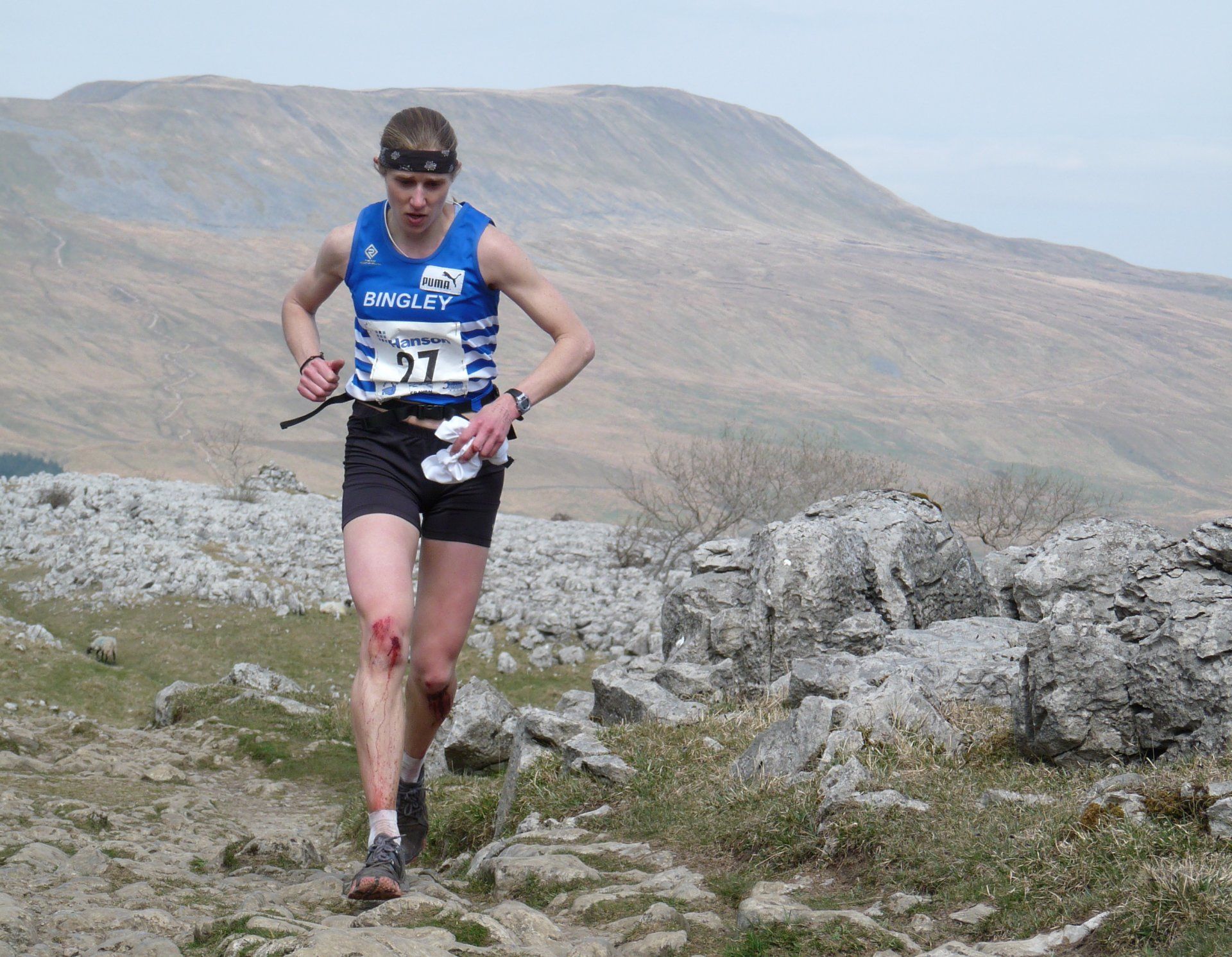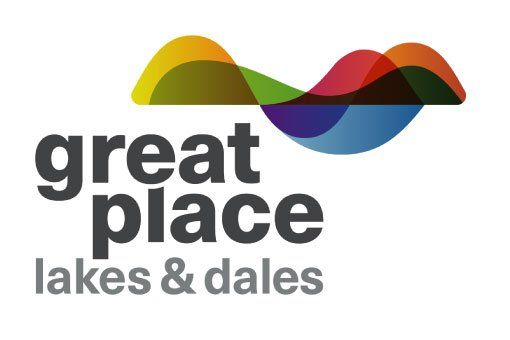Over the course of its near 70 year history, the Three Peaks Race has become renowned for being one of the biggest trials that Ingleborough, Whernside and Penyghent throw down. An arduous 24 mile race, exacerbated by the weather, terrain and the gruelling steepness of the course. It is a challenge many want to embrace and conquer, from ‘merely’ finishing inside the cut off times, to bettering a previous position, to being in contention for a prize.
The following is an edited excerpt from
Peak Performance
by Victoria Benn
Although technically not a marathon at ‘just’ 24 miles, the race’s legacy of amalgamating some of Yorkshire’s most horrendous weather conditions with around 1,600m of ascent (and descent) have seen it floor the best runners in the world over its long history.
Starting from humble beginnings in 1954, the Three Peaks Race has grown from a ‘six starters and three finishers’ race to one which quickly fills up its 999 places – despite its stringent entry criteria. Such is its kudos on the international fell and mountain running stage, the race played host to the World Long Distance Mountain Running Challenge in 2008, attracting a cohort of elite mountain runners and world long distance champions from 21 countries, definitively sealing its reputation as a world class event.
By the late 1940s competitive fell runners were starting to run the iconic Yorkshire peaks and establish new records for the circuit, with a sub five hour time being the universally acknowledged goal. The consolidation of the record attempts during this era was established in 1948 by a group from Leeds’ Harehills Harriers. Des Birch, an England cross country international, recorded the fastest time of four hours and 27 minutes.
Just a few years later Fred Bagley and Malcolm Withnell of Preston Harriers organised the first official Three Peaks Race on the last Sunday of April 1954, attracting six starters. Fred was also one of the famous ‘three finishers’, winning the race in three hours, 48 minutes.
The early races from 1954 to 1974 ran the peaks anti-clockwise following the first race’s precedent, starting from the Hill Inn, Chapel le Dale and tackling Ingleborough first, followed by Penyghent and Whernside.
The record for the first race route belongs to Jeff Norman from Altrincham, who won it six times. He established his two hours, 29 minutes, 53 seconds record in 1974 – a time which, despite subsequent changes to the course, is still credited as being the fastest ever traverse of the Three Peaks. Even more incredible is that Norman achieved the sub two hours 30 minute time – breaking his own records set in 1971 and 1973 – in wet, windy and misty conditions. Befittingly he went on to represent Great Britain for the marathon at the 1976 Montreal Olympics.
As the race grew in prestige the entries mushroomed and with a record 280 starters taking to the line for the 1974 race, it was decided to overhaul the whole event to cope with the growing numbers. In 1975 the start of the race was moved to Horton in Ribblesdale, a major alteration which also demanded a change to the sequence the peaks were run, with the new route positioning Penyghent first and Ingleborough last.
“In the Three Peaks Race Ingleborough is at the end and I absolutely dread it because it’s just such a long way back from the summit to the finish in Horton…” Rob Jebb, four times champion of the Three Peaks Race
These changes marked the beginning of the gradual erosion of the race’s navigation element, with the new route immediately establishing a clearly defined ascent up Penyghent via the Pennine Way track, as well as lengthening the race by approximately a mile. The course record for this route belongs to the 1978 Commonwealth Games finalist, John Wild which he set in 1982. In 1979 the race also became open to women, attracting 11 starters with Jean Lochhead, a track, cross country and cycling international winning the women’s race in three hours, 43 minutes, 12 seconds.
The race’s current course record was established a decade later following one further and final route change in the early 1980s, which added an estimated 10 minutes to the race, paving the way for Andy Peace’s breath-taking victory in two hours, 46 minutes, three seconds in 1996.
“I remember running the race the year before and Fergy (Ian Ferguson) who’s a good pal was running and he had the record, and I remember him shouting “You’ll never beat my record!” I was determined to go back the next year to see if I could.” Andy Peace
The last watershed moment for the race came in 2008 when it became the stage for the fifth World Long Distance Mountain Running Challenge, an international event which gave UK entrants the chance to compete in a World Championship race in the heart of the Yorkshire Dales.
With a cohort of top international athletes from as far afield as the USA and Australia, the stage was set for the existing course records to be broken. Peace’s remained intact with Jethro Lennox coming in over seven minutes outside it, however Anna Pichrtova from the Czech Republic succeeded in trimming two minutes off Olympic marathon runner Sarah Rowell’s 1996 record, which had stood for 11 years. The Czech runner didn’t reign long, as in 2017 Yorkshire’s own international Victoria Wilkinson not only knocked more than five minutes off Pichrtova’s record – with a time of three hours, nine minutes and 19 seconds – but was the highest female finisher in the race since it had become open to women, claiming thirteenth place overall.
“For a time I was coached by Sarah Rowell, and her voice is often in my head when I’m running – little snippets of advice and confidence that she gave me, so it felt great to bring the record back to Yorkshire…”
Current Three Peaks record holder Victoria Wilkinson talking about Sarah Rowell, holder of the women’s record for 11 years.


